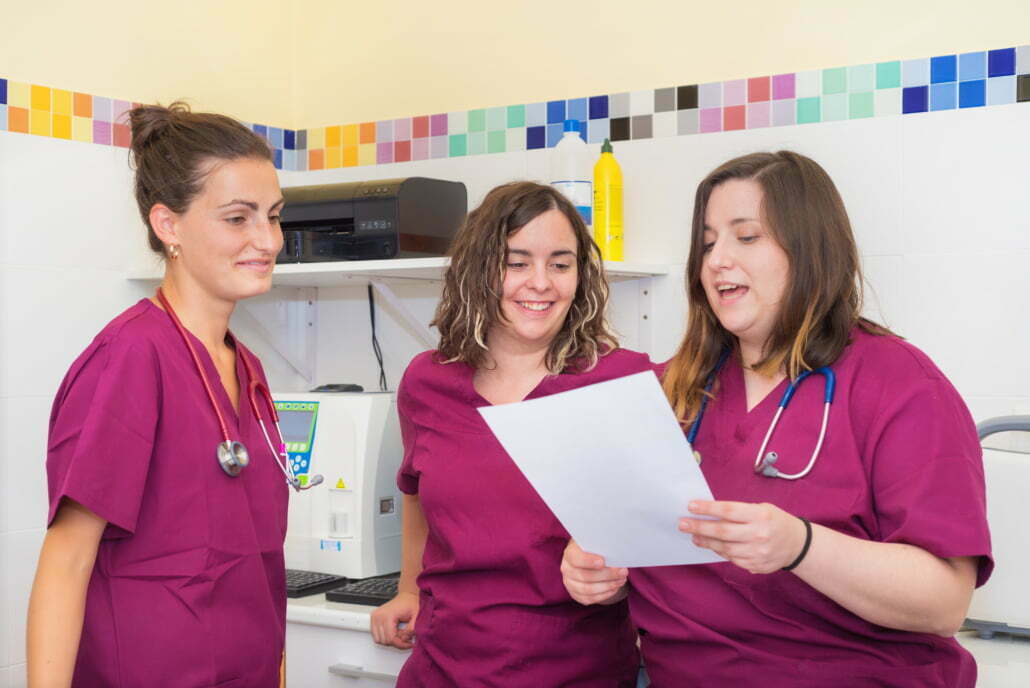Preparing for a successful RCVS Practice Standards Scheme assessment
Your inbox pings, and there it is – the email from your RCVS assessor with the all-important assessment date. As you stare at it, the initial feeling of unease creeps in, and you wonder how to kick off this journey. If this scenario sounds familiar, fear not! We’ve got your back. In this blog, we’re here to guide you with some valuable tips to help you make a confident start and pave the way for a successful assessment day.

Tip 1: Set the right expectations
The assessment process isn’t just about ticking off boxes; it serves multiple important purposes. First and foremost, it’s a means to acknowledge and celebrate all the excellent work carried out within your veterinary practice. Additionally, it’s a way to ensure compliance with the necessary legislation concerning medicines. However, it’s essential to emphasise that this assessment isn’t a simple pass-or-fail exercise. It’s a valuable opportunity to invite a fresh perspective into your practice, uncover any blind spots, and continually improve the way you operate. Once the assessment day is complete, you’ll receive a report detailing your areas of improvement and a timeline to address them.
Tip 2: Start with the end in mind
Adopt a project-like mindset with three months of preparation. Break this time into monthly segments and list specific activities you want to accomplish in these time periods. Maintain a visible progress tracker, like a whiteboard, which everyone can see in order to generate some “creative tension” within the team. Utilise numbers to tell the story e.g. “We have 1 month left to go”, or “we’ve internally audited 80% of modules”.
Tip 3: Work Smart
Practice Standards is composed of 19 modules, but not all areas should be treated with equal attention. Some modules, such as Diagnostic Imaging, Medicines, and Practice Team, deserve particular focus due to the number of regulatory requirements they contain. If you’re short on time, Medicines (Module 10) should take priority, because the assessor’s core aim is to check you’re complying with the Veterinary Medicines Regulations (VMRs). If you have deficits in this area, the assessor will give you a short timescale to address them (1 month). Therefore, its a good idea to start early and invest time on the Medicines module before the assessment day.
Tip 4: Create Champions
To make the preparation process more manageable, consider creating champions within your team. Assign specific modules to team members based on their expertise and roles. For instance, an experienced receptionist and vet can handle the Client Experience and Clinical Governance modules respectively. Members of the nursing team can take on Dentistry, Surgery, Anaesthesia, Nursing, and Lab modules. Your RPS should lead the Diagnostic Imaging module, and if you have a Practice Manager, they might be best placed to focus on the Practice Team module. Where possible, try to ensure these team members are in on the day of the assessment and communicate with your assessor when they will be free for questions.
this assessment isn’t a simple pass-or-fail exercise. It’s a valuable opportunity to invite a fresh perspective into your practice
In summary, preparing for your RCVS assessment doesn’t need to be stressful. Start early with your planning, break it down into chunks, and get the whole team involved. Should you have any questions or need additional support along the way, don’t hesitate to Contact VetQI. Best of luck with your RCVS assessment preparations!



